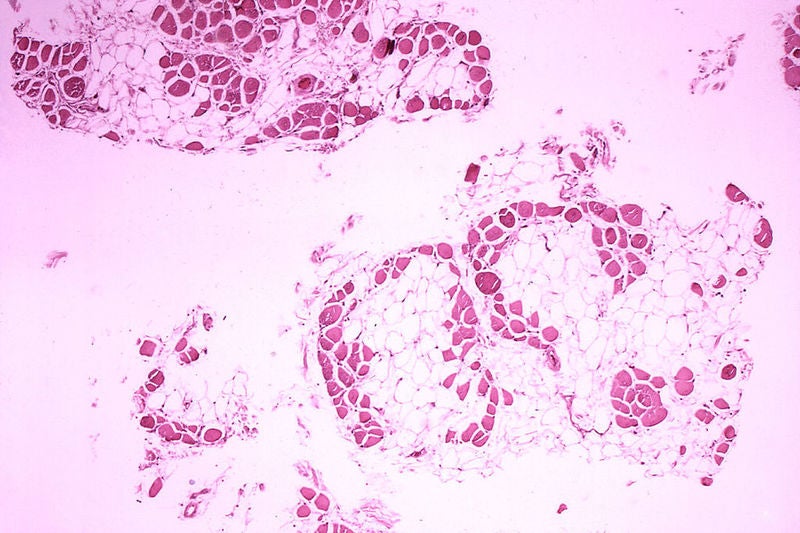
Swiss specialty pharmaceutical company Santhera Pharmaceuticals has reported positive long-term efficacy results from the real-world SYROS study of idebenone in Duchenne muscular dystrophy (DMD) patients.
Data showed that the drug consistently decreased the rate of respiratory function loss for up to six years, supporting its potential to modify the respiratory function decline course.

Discover B2B Marketing That Performs
Combine business intelligence and editorial excellence to reach engaged professionals across 36 leading media platforms.
Idebenone is a synthetic short-chain benzoquinone and the NAD(P)H:quinone oxidoreductase (NQO1) enzyme cofactor.
It is designed to trigger mitochondrial electron transport, reduce and scavenge reactive oxygen species (ROS), and supplement cellular energy levels.
The prospective SYROS study collected real-world data from participants who completed the Phase III DELOS clinical trial and then treated with 900mg/day idebenone for an average of 4.2 years.
Primary objective of the study was the long-term evolution of the respiratory function in subjects who maintained therapy for up to six years, compared to their previous off-idebenone period.

US Tariffs are shifting - will you react or anticipate?
Don’t let policy changes catch you off guard. Stay proactive with real-time data and expert analysis.
By GlobalDataAccording to the study findings, long-term treatment led to a 50% decrease in the annual rate of decline in the forced vital capacity percent of predicted (FVC%p).
Investigators further observed that the therapy effect was consistent year-on-year for up to six years.
Consistent reductions were also achieved in the rate of inspiratory as well as expiratory respiratory function loss.
The company also added that long-term treatment with idebenone resulted in a minimised risk of certain patient-relevant outcomes such as bronchopulmonary adverse events and hospitalisations by respiratory causes.
Santhera Pharmaceuticals chief medical officer and development head Kristina Sjöblom Nygren said: “We are very excited to see that the significant treatment effect with idebenone observed in our 52-week Phase III DELOS study is maintained over the long-term.
“The new findings are highly relevant for DMD patients in respiratory decline who have an urgent need for a therapy to modify the declining course of respiratory function decline and ultimately delay the need for assisted ventilation.”
DMD is considered as one of the most common types of progressive muscle weakness and degeneration affecting only males.
The genetic disorder’s symptoms include cell damage, impaired calcium homeostasis, increased oxidative stress and reduced energy production in muscle cells.





